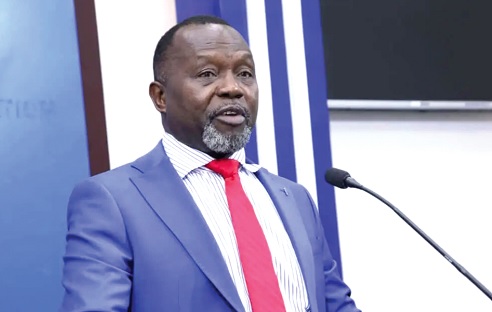The country’s perception of corruption was at an all-time low in 2024.
Two findings were very instructive in Afrobarometer Round 10 (2024). First, 63 per cent said the level of corruption had “increased a lot.” Second, 82 per cent said the government was handling the fight against corruption “fairly badly/very badly.”
The survey results were made public in October 2024. However, it only confirmed several discussions about corruption in public spaces. It also gave an empirical validation to the campaign promise of the National Democratic Congress (NDC) that if voted into power, it would “launch an Operation-Recover-All-Loot to investigate, prosecute, and recover proceeds of corruption.”
This promise was made under the broad theme of “Restoring Good Governance and Fighting Corruption.”
The election results and the heavy defeat suffered by the New Patriotic Party (NPP) were a clear sign that Ghanaians were not only rejecting the incumbent party, but they were also endorsing the opposition NDC, in my opinion, on two major issues: the economy and the fight against corruption.
The early days of Oral
The trajectory of the work of ORAL needs no reminders, but it is worth recalling the critical steps taken in attempts to fulfil this campaign promise.
On December 18, during the transition, President Mahama set up a five-member committee, charged with gathering information from the public on alleged acts of corruption.
This move, and the names of the committee members, signalled to the public that the President-elect was committed and very determined to make right the alleged wrongs of his predecessors.
On February 10, 2025, after about two months of work, the committee submitted its report to the President.
According to them, as many as 2,417 suspected cases of alleged corruption were identified, thanks to information from the public.
No one can forget the images of the committee members and the thickness of the report as it was being presented to the President.
Again, this gave further assurance to the public that indeed, there was a deep commitment on the part of the President to fight corruption.
Over the last several months, Ghanaians have been briefed by the Attorney General on progress being made to deal with alleged cases as part of ORAL, with some high-profile ones discussed, and charges announced against certain persons.
I say all of this to make the point that the early days of ORAL provided strong signals of hope to Ghanaians.
ORAL being undermined?
It is therefore disturbing to have heard the General Secretary of the NDC lament at a gathering of NDC lawyers that “some among us are trying to cut deals with people who are supposed to be prosecuted. Some are becoming conduits through whom pressure is being brought to bear on people who are supposed to do what is right.”
He was unequivocal about his assertion, and although he mentioned no names, he added a warning that a time may come when those involved may be exposed.
The warning of the party’s General Secretary must be taken seriously, and the public, through whose massive votes the NDC was brought back to power, must raise their voices to condemn such people and demand that ORAL stay the course.
If ORAL fails
The fight against corruption does not fail in the courtrooms, which is why at his last briefing, I was concerned when the Attorney General asserted, he only prosecutes, and it is up to the courts to convict.
True as that may be, the fight against corruption is also evaluated in the courtrooms of public opinion, and that is where governments lose the fight.
Citizens want to see commitment and a genuine fight against corruption.
Stories of people trying to “cut deals” undermine public confidence not only in those who promised ORAL as an accountability tool, but in the country’s institutions.
If you pay attention to Afrobarometer, these two things should give you a pause when tempted to undermine ORAL.
First, trust in institutions is extremely low.
Do the alleged perpetrators of “deal-cutting” want to deal the final death blow to institutions by validating the public’s low trust in them?
Second, in 2024 (Round 10), 73 per cent of Ghanaians believed “officials who commit crime often/always go unpunished.” Compare that to 26 per cent who said the same about ordinary people.
Again, do the alleged perpetrators of “deal-cutting” know what the success of their efforts can do to faith in our justice system?
Beyond the good governance implications, if ORAL fails, not because of institutional challenges in fighting corruption but rather because of alleged perpetrators of “deal cutting”, the NDC must keep in mind the public is watching and as demonstrated in 2016 and 2024, the Ghanaian voter these days will not hesitate to pull their most potent accountability tool – voting.
The writer is the Project Director, Democracy Project.

